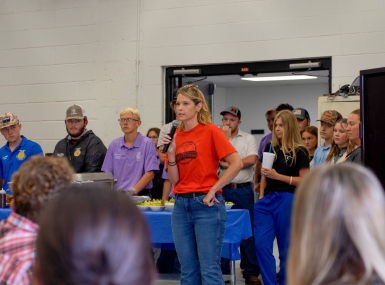HUD allocates $1 billion in CDBG CARES Act funding to states
Upcoming Events
Related News

Key Takeaways
On May 11, the U.S. Department of Housing and Urban Development (HUD) Secretary Ben Carson announced the allocation of $1 billion for states in CARES Act coronavirus relief funding through the Community Development Block Grant (CDBG) program, a key priority for counties. To date, HUD has provided over $3 billion in CDBG funding nationwide to help local communities combat COVID-19 and alleviate economic hardship. CDBG is a vital funding resource for local governments for housing, water, infrastructure and human services programs.
HUD allocated an initial $2 billion from round one to state and local entitlement grantees based on the current CDBG formula and all grant agreement amendments from the first round have been completed by grantees and approved by HUD. This second round of $1 billion in funding allocated to states and insular areas is based on a new formula developed by the HUD Secretary that uses variables focusing on public health needs, risk of transmission of coronavirus, rate of coronavirus cases and economic disruption.
Specifically, the new allocation formula uses data on low-income elderly and poor children to target to places with higher public health risk while also using recent unemployment insurance claims data to provide for states hardest hit, at the time of the allocation, by unemployment. All the factors are adjusted so that places with higher than the national average in COVID-19 cases receive a slightly higher share of funding.
Grantees may select from more than 25 eligible CDBG activities to shape their local programs to meet their needs, including:
- A wide range of public services to prevent, prepare for and respond to coronavirus, such as providing food and health services for low-income elderly persons and children;
- Small business assistance or emergency housing payments for entities and families impacted by economic and housing market disruptions or
- Acquisition and rehabilitation of structures for health facilities, food banks, or public improvements needed to support community coronavirus response, preparation, or prevention. For example, grants may assist improvements to heating, ventilation and air conditioning in a local grocery store to protect employees and shoppers, or alterations to neighborhood business district sidewalks and facades to enable curbside pick-up or social distancing.
Every U.S. state and insular area will receive a portion of these CDBG relief funds. To view a list of allocations, please click here.
The CARES Act allowed but did not require states to share round two funding allocations with non-entitlement communities and entitlement communities. NACo recommends counties contact their state CDBG offices to see how their state intends to distribute round two of CDBG CARES Act funding. HUD will also distribute $2 billion in a third round of CDBG CARES Act funding based on this new formula. This funding will be available for allocation on a rolling basis based on criteria to be determined by the Secretary, prioritizing risk of transmission, coronavirus cases compared to the national average, and economic and housing market disruptions. The CARES Act did not establish a deadline to allocate funds, but HUD must disburse all funds by September 30, 2022. HUD will describe the third round of allocations in a later allocation announcement.
With counties facing significant new expenditures as a result of the pandemic, NACo urges Congress to provide direct federal aid for counties of all sizes to make up for the unprecedented public health costs and historic losses in revenue.
For additional NACo resources, please see the following links:
- NACo Blog: Support Local Development and Infrastructure Projects: The Community Development Block Grant (CDBG) Program
- NACo Report: CDBG for Counties

Attachments
Related News

County leadership guides shared prosperity
There’s no chicken-or-egg debate: Economic mobility is not just a byproduct of growth — it is the result of intentional county governance.

Inland port offers opportunity for Hertford County, N.C.
Hertford County, N.C. doesn’t have a lighthouse, but that hasn’t stopped its economic future from shining thanks to what became known as Project Green Lantern.

Chamber of commerce program helps keep workers on the job
Audrain County, Mo.'s Workforce Resource Assistance Program has helped employers keep staff in place, reducing turnover and promoting stability.